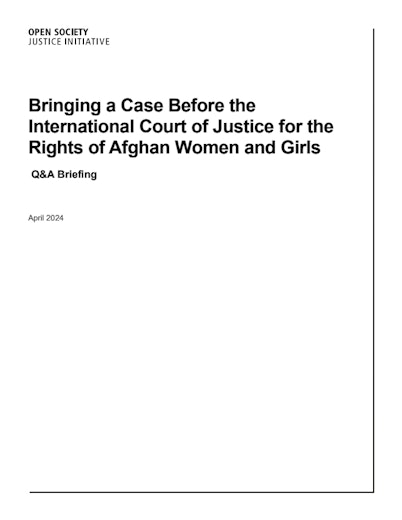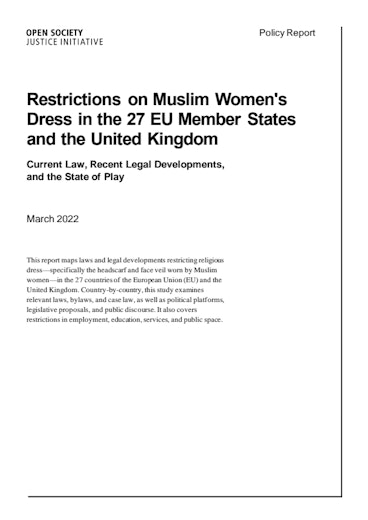Dutch Caribbean Consultative Body v. Data Protection Authority
Ethnic Database for Antillean Youth
In December 2005, the Dutch Government adopted a law creating a database which would contain the details of all youths of Antillean-descent, purportedly as a crime control measure. After legal interventions the law was withdrawn in early 2009. (Keywords: Discrimination - Ethnic Profiling - Database)
Facts
In December 2005, the Dutch Government established a database—the VerwijsIndex Antillianen ("Reference Index of Antilleans")—to identify Antillean youths deemed to be "at-risk" of committing crimes or vulnerable to other social problems. Only youths of Antillean origin were liable to registration in the database. Once registered, the law provided that individuals were placed under enhanced scrutiny, including preventive law enforcement interventions, such as house visits by intervention teams and street surveillance specifically targeted at Antilleans.
The Reference Index database represented a departure from the usual rules for data collection in the Netherlands. Because the Reference Index database included data concerning ethnicity and race the Minister was required by Dutch law to apply for a waiver from the College Besherming Persoonsgegevens (the Dutch Data Protection Authority).
As a result, the Stichting Overlegorgaan Caribische Nederlanders ("Dutch Caribbean Consultative Body" or DCCB), an organization representing the Antillean population in the Netherlands, challenged the waiver before Rechtbank Den Haag (The Hague Regional Court) in an action against the Data Protection Authority and the Minister for Housing.
On July 26, 2007, The Hague Regional Court ruled in favor of the DCCB, concluding that "processing data in that reference index regarding Antillean origin of at-risk youths is not an appropriate method to reach the intended purpose."
The government, together with the 21 municipalities that intended to use the database, appealed the decision to the Raad van State (Council of State). On September 3, 2008, the Council of State allowed the appeal.
At the same time the issue was raised with the Dutch government by the Council of Europe Commissioner for Human Rights and the Antilles Parliament, both making use of the Justice Initiative arguments.
Open Society Justice Initiative Involvement
The Open Society Justice Initiative joined local lawyers in the action before the Council of State arguing that such an ethnic database violated the European Convention of Human Rights.
Arguments
Racial and Ethnic Discrimination. The creation and use of the Reference Index for Antilleans constituted ethnic profiling, an unlawful infringement of the right to be free from racial and ethnic discrimination, which is prohibited under Article 14 and Protocol 12 of the European Convention of Human Rights.
Right to Privacy and Protection of Personal Ethnic Data. The collection of racial and ethnic data in the Reference Index violates the right to respect for private and family life protected in Article 8 of the convention. Such collection of data does not fall within any justified exceptions to the right to private life under Article 8(2) of the convention.
On September 3, 2008, the Council of State found that the state had demonstrated a sufficient interest in creating an ethnic database because of the dangers emanating from Antillean criminals and would-be criminals. It held that differential treatment, even on ethnic grounds, was justifiable for the purpose of preventing crime.
Implementation
In November 2008, the Minister of Integration announced that the policy of ethnically targeting a particular population for crime control and social assistance would not be implemented after all, and was then forced to resign by her party. However, the newly appointed minister still maintained that a specific database targeting Antilleans exclusively is not necessary to address the problems which they may be experiencing. The legislation authorizing the database never entered into force and was allowed to expire in December 2008.
The government is expected to introduce a new law during 2009 that deals with all youths (Verwijsindex Risicojongeren) who may encounter problems with the police or face difficulties in participating effectively in society, which does not rely on ethnic targeting. However, the Rotterdam city local government has announced that they intend to maintain their existing database of "problematic youths" which includes entries concerning the ethnic origin of the youths, even if the law does not allow for such sensitive data entries to be made.
In addition, the government is currently drafting a new law regulating freedom of movement between the Netherlands Antilles and the European part of the Netherlands. Concerns have been voiced that the draft law may result in preventing persons originating from the Antilles to freely move and reside in the Netherlands even if they are citizens of the same nation.
The Justice Initiative is continuing to monitor any new proposals in order to assess whether they meet human rights standards.
The Justice Initiative lawyer appears at the Council of State to argue the case alongside the Dutch lawyer for the applicants.
The Justice Initiative submits legal opinion on the case to the Council of State.
The Hague Regional Court rules in favor of the DCCB, concluding that "processing data in that reference index regarding Antillean origin at-risk youths is not an appropriate method to reach the intended purpose." The government appeals to the Council of State. The government, together with the 21 municipalities that intend to use the database, appealed the decision to the Raad van State (Council of State).
Waiver is granted by the Dutch Data Protection Agency for the government to collect racial and ethnic data.
The Dutch Government establishes the Reference Index of Antilleans.
Related Cases
Fadia v. Diakonisches Werk Hamburg
This case is about a woman in Germany whose job application was rejected because she refused to convert to Christianity. She challenged the rejection as religious discrimination.
Sejdic and Finci v. Bosnia and Herzegovina
This case is about the right of minorities to run for political office in Bosnia and Herzegovina.
Related Work
Q&A: Bringing a Case Before the International Court of Justice for the Rights of Afghan Women and Girls
This paper considers 21 questions around the feasibility of bringing a complaint at the International Court of Justice against Afghanistan's Taliban for egregious and prevalent violations of women’s and girls’ rights.

Restrictions on Muslim Women's Dress in the 27 EU Member States and the United Kingdom
This policy brief and accompanying fact sheet map EU and UK laws and pending legislation restricting religious dress—specifically the headscarf and face veil worn by Muslim women.

Evidence Suggests Evictions in a Danish Neighborhood were Racially Biased. Now the Case is Before the High Court.
This case may set an important precedent for standards for discrimination in Denmark.
